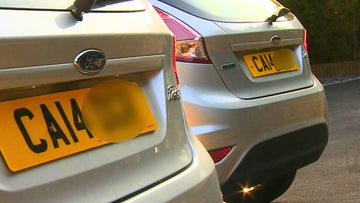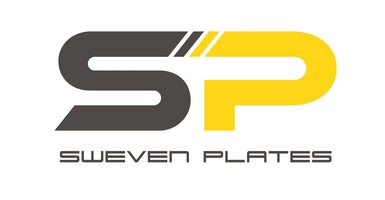
What is Number Plate Cloning and How To Prevent It
With the surge in vehicle-related criminal activities, the practice of number plate or vehicle cloning has gained prominence in recent times. Startlingly, the Driver & Vehicle Licensing Agency (DVLA) reported an alarming increase in cases of wrongful linkage of vehicles to criminal offenses. In April 2019, there were 656 such cases, which escalated to a staggering 1,105 in March 2020. These figures highlight the grim reality of over a thousand innocent individuals being implicated in crimes they had no involvement in. This disconcerting trend shows no sign of abating, painting a worrying picture for vehicle owners.
How do vehicles get cloned?
Criminals often identify vehicles owned by unsuspecting drivers that closely resemble their own, typically sharing the same make, model, and color. This strategic resemblance makes it nearly impossible to distinguish between the two vehicles at a glance. Subsequently, the criminals acquire the number plates from the identified vehicle and affix them to their own. The theft of physical plates or the creation of new ones from non-DVLA Registered Number Plate Suppliers, who do not require supporting documentation, facilitates this process. By substituting the stolen or fabricated registration on their own vehicle, criminals become exceedingly difficult to trace. The registration now points to the innocent owner's details and car, effectively providing a cover for illicit activities, enabling criminals to conduct unlawful dealings with minimal risk of detection. Meanwhile, the genuine owner faces the burden of speeding tickets, parking fines, and even being intercepted by Roads Policing Units or Armed Response vehicles. This predicament underscores the grave injustice suffered by those who fall victim to license plate cloning.
An investigative effort by the Sun newspaper a few years ago delved into the realm of number plate cloning, highlighting the associated hazards.
In the unfortunate scenario of falling victim to license plate cloning, apprehension might arise. However, a step-by-step approach can help navigate the situation with greater ease.
What to do if your Number Plates are Cloned?
-
Discovery of cloned plates often coincides with the reception of a ticket, typically related to speeding, parking violations, or running red lights. It is worth noting that this scenario represents a more benign outcome; cloned plates can be utilised in far more sinister criminal activities.
-
A careful evaluation of the circumstances should help ascertain your innocence. If you are certain that the offense was not committed by you, return the ticket or fine to the issuing authority. Alongside, provide a comprehensive explanation backed by relevant evidence, such as your whereabouts and vehicle's location at the time of the alleged incident.
-
Swiftly notify both the DVLA and the police about the occurrence. Immediate action can help prevent further offenses by the offender.
The risk associated with license plate cloning has prompted the DVLA to close down non-compliant number plate suppliers. These entities, often disregarding the necessity for proper documentation, allowed the easy procurement of plates. This lax approach facilitated criminals obtaining other individuals' plates and perpetrating crimes under false identities.
A notable incident involved a journalist from the Telegraph acquiring six sets of plates without providing ownership documents or identification. Similar investigative endeavors were undertaken by reporters from other publications, including the Sun.
Both the DVLA and the British Number Plate Manufacturers Association (BNMA) underscore the legal requirement for proof of identity and entitlement while purchasing license plates. This precaution is crucial to prevent fraudulent activities and protect individuals from falling victim to such crimes.
Unfortunately, some individuals express reluctance when it comes to complying with this reasonable request, leaving negative reviews or raising objections. While acknowledging the inconvenience, it's essential to recognise that this mandate is in place for safety and legal adherence. The documentation requirement is not meant to infringe on privacy but to safeguard against fraudulent practices. Ensuring compliance with this requirement is a small step towards thwarting license plate cloning.
Certain number plate suppliers may offer license plates without demanding documentation. These suppliers are not DVLA Registered Number Plate Suppliers and often operate from locations outside the UK, such as the Republic of Ireland or the Channel Islands. Such establishments potentially facilitate criminal activities like vehicle cloning. It's advisable to steer clear of such options to ensure personal safety and security.
Please ensure you have checked the company you are buying from and they are a DVLA-registered Number Plate Supplier, such as Sweven Plates.
If you are unsure of which documentation to provide, please get in touch with us and one of our colleagues will be more than welcome to assist you.
